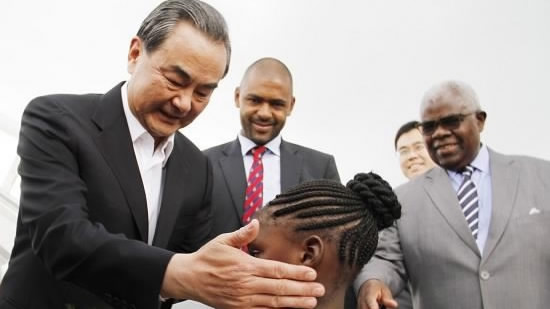Chinese Foreign Minister Wang Yi wrapped up his African tour on Thursday that carried him to Madagascar, Zambia, Tanzania, Republic of the Congo and Nigeria, at a time when China-Africa cooperation is going from strength to strength.
The foreign minister's visit was in keeping with China's nearly three-decade-long diplomatic tradition of making Africa its first overseas destination each year.
Such a tradition signifies that "China always regards developing countries as the cornerstone of its diplomacy and Africa its priority," as Wang said during the visit.
NEW DRIVING FORCE, POSITIVE CHANGES
China announced 10 major cooperation plans which are aimed at helping Africa realize industrialization and agricultural modernization, at the Johannesburg summit of the Forum on China-Africa Cooperation (FOCAC).
China also promised 60 billion US dollars as funding support to see these plans through.
The implementation of these plans has constituted a new driving force for the China-Africa cooperation, Wang said while in Zambia.
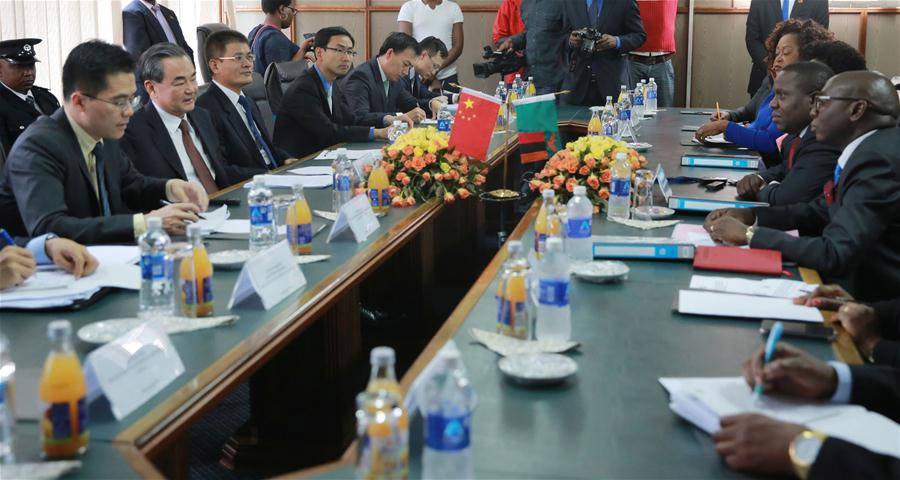
Chinese Foreign Minister Wang Yi (2nd L) meets with his Zambian counterpart Harry Kalaba (2nd R) in Lusaka, capital of Zambia, Jan. 8, 2017. /Xinhua Photo
Chinese Foreign Minister Wang Yi (2nd L) meets with his Zambian counterpart Harry Kalaba (2nd R) in Lusaka, capital of Zambia, Jan. 8, 2017. /Xinhua Photo
The cooperation has witnessed rapid growth since then, with many Chinese companies coming to Africa to invest and establish plants. From the December 2015 Johannesburg summit to July 2016, the agreements signed in various fields between China and Africa were valued at over 50 billion US dollars.
Wang said in this process "three new changes" have emerged in terms of China-Africa cooperation. A government-led pattern has gradually evolved into one where the market plays a major role. General merchandise trade has been gradually upgraded to production capacity cooperation, processing and trade. There is also a gradual shift from basic project contracting to investment, construction and operation.
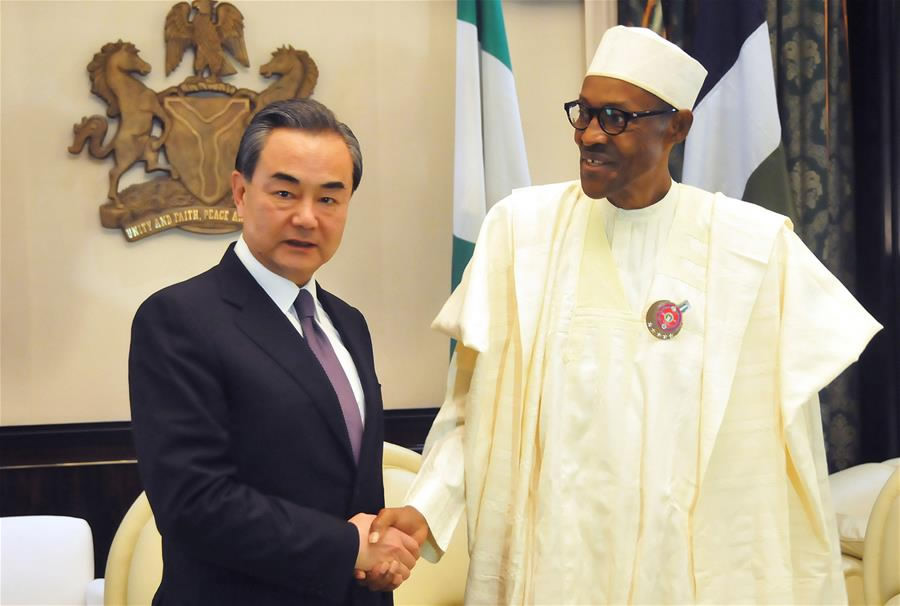
Chinese Foreign Minister Wang Yi (L) meets with Nigerian President Muhammadu Buhari (R) in Abuja, Nigeria, on Jan. 11, 2017. /Xinhua Photo
Chinese Foreign Minister Wang Yi (L) meets with Nigerian President Muhammadu Buhari (R) in Abuja, Nigeria, on Jan. 11, 2017. /Xinhua Photo
Many China-funded mega projects in Africa were completed in 2016, paving the way for the ambitions laid out at the summit to be materialized. Among them are the 752.7-km Ethiopia-Djibouti Railway, Nigeria's 186.5-km Abuja-Kaduna standard gauge railway and Tanzania's 680-meter-long, six-lane Nyerere Bridge, the largest cable-stayed cross-sea bridge in East Africa.
China, Zambia and Tanzania will work to revitalize the Tanzania-Zambia Railway, built with Chinese assistance in the 1970s and regarded as a monument to China-Africa friendship.
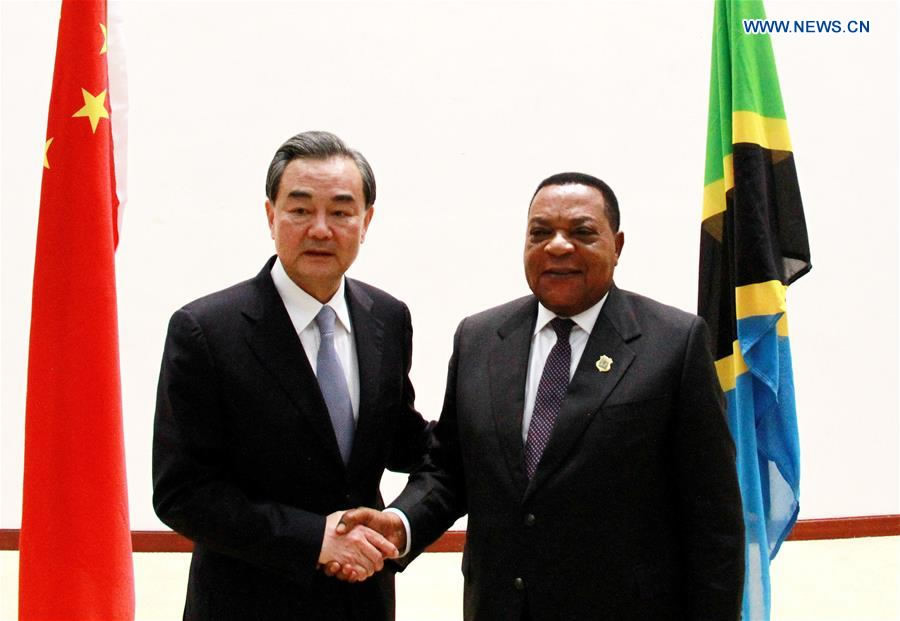
Chinese Foreign Minister Wang Yi(L) shakes hands with his Tanzanian counterpart Augustine Mahiga in Dar es Salaam, Tanzania, Jan. 9, 2017. /Xinhua Photo
Chinese Foreign Minister Wang Yi(L) shakes hands with his Tanzanian counterpart Augustine Mahiga in Dar es Salaam, Tanzania, Jan. 9, 2017. /Xinhua Photo
Through comprehensive reform of the management system, effectively linking the railway to ports and building an industrial economic belt along the railway, it is hoped that the 1,860-km railway line will gain renewed vigor and contribute to helping Tanzania, Zambia and other African countries realize independent and sustainable development.
In Madagascar, Wang said that China welcomes African countries to join the Belt and Road Initiative.
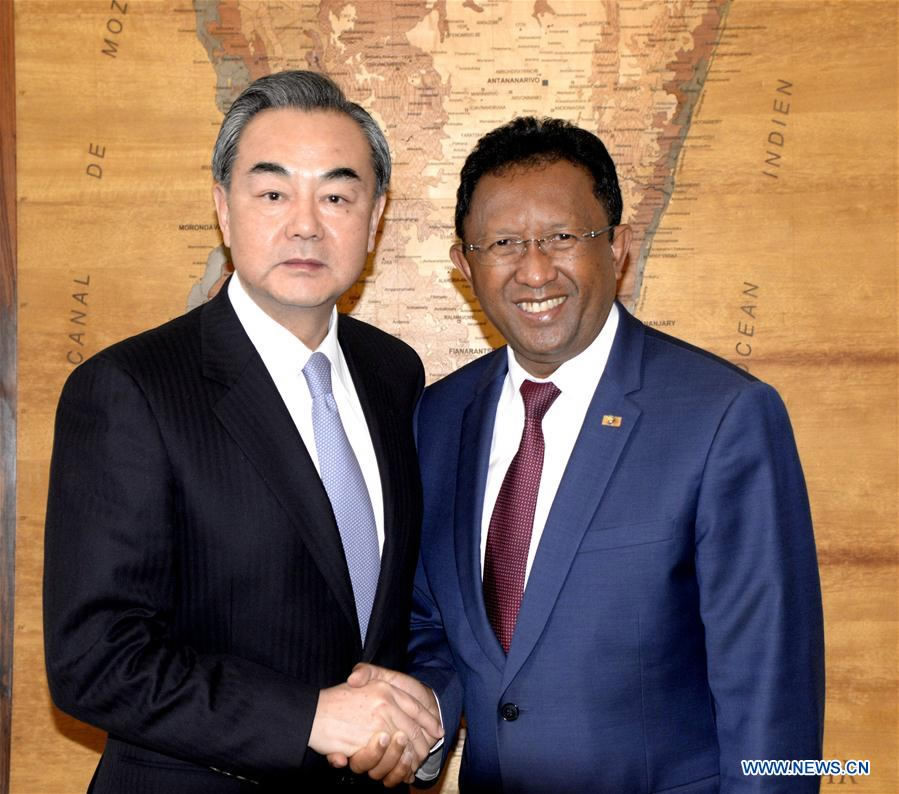
Chinese Foreign Minister Wang Yi (L) meets with Madagascar's President Hery Rajaonarimampianina (R) in Antananarivo, Madagascar, Jan. 7, 2017. /Xinhua Photo
Chinese Foreign Minister Wang Yi (L) meets with Madagascar's President Hery Rajaonarimampianina (R) in Antananarivo, Madagascar, Jan. 7, 2017. /Xinhua Photo
China has already started to explore cooperation opportunities with a number of African countries, especially those on the eastern coast of Africa and has achieved positive progress in this regard.
With the deepening of cooperation, the African continent will get more development benefits from this cooperation, said Wang.
As Africa's largest island, Madagascar is geographically closest to China among African countries. Madagascar had direct links with the ancient maritime silk road in history, making it a natural extension for the 21st Century Maritime Silk Road.
The Belt and Road Initiative, proposed by China in 2013, aims to build a trade and infrastructure network connecting Asia with Europe and Africa along the ancient Silk Road trade routes. It has won support from over 100 countries and international organizations.
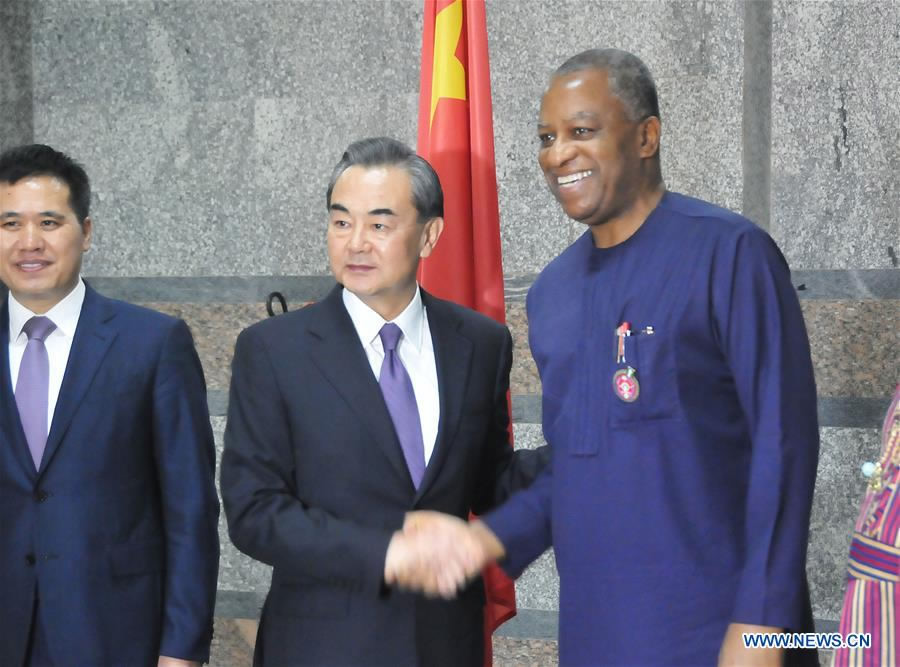
Chinese Foreign Minister Wang Yi (C) shakes hands with his Nigerian counterpart Geoffrey Onyeama (R) during a bilateral meeting in Abuja, Nigeria, on Jan. 11, 2017. /Xinhua Photo
Chinese Foreign Minister Wang Yi (C) shakes hands with his Nigerian counterpart Geoffrey Onyeama (R) during a bilateral meeting in Abuja, Nigeria, on Jan. 11, 2017. /Xinhua Photo
China would help the Republic of the Congo build a special economic zone (SEZ) in the harbor city of Pointe Noire, Wang said.
The current complexity in global politics and economics has brought many uncertainties to the peace and development of the African continent, as well as new opportunities, Wang said while in Nigeria.
China has the desire and capacity to make new contributions to Africa's peace and development through deepening its cooperation with the continent, he said.
(Source: Xinhua News Agency)

